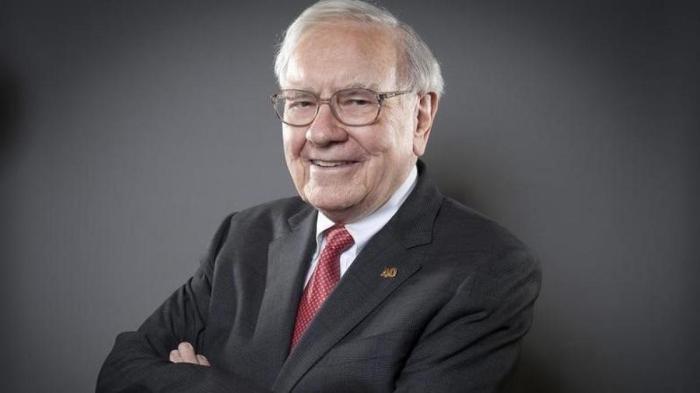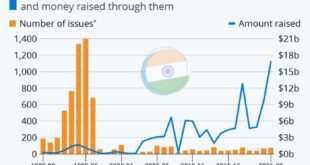Berkshire Hathaway sells over $896 million in Bank of America shares, a move that has sent ripples through the financial world. This strategic decision by Warren Buffett’s investment powerhouse has sparked questions about the future of both Berkshire Hathaway and Bank of America.
Was this a simple trimming of a portfolio holding, or a signal of a changing market landscape? The sale, while seemingly small in the grand scheme of Berkshire’s vast holdings, carries significant weight, hinting at the intricate dance between investment strategy, market conditions, and the ever-evolving landscape of financial institutions.
Berkshire Hathaway, known for its long-term investment approach and focus on value creation, has historically held a significant stake in Bank of America. This sale, however, suggests a shift in their perception of Bank of America’s future prospects. The move comes amidst a backdrop of rising interest rates, economic uncertainty, and a changing financial landscape.
Analyzing the rationale behind this decision requires a deeper dive into the current market conditions, Bank of America’s performance, and the potential implications for both companies and the broader financial market.
Berkshire Hathaway’s Investment Strategy
Berkshire Hathaway, under the leadership of Warren Buffett, has long been renowned for its unique and successful investment strategy. The company’s approach, characterized by a focus on long-term value creation, has delivered exceptional returns for its shareholders over decades.
Rationale for Selling Bank of America Shares
Berkshire Hathaway’s decision to sell a portion of its Bank of America stake, while seemingly a departure from its usual long-term holding strategy, aligns with its core principles. The sale was likely driven by a combination of factors:
- Portfolio Rebalancing:As Berkshire Hathaway’s portfolio grows, it becomes increasingly important to maintain a balanced allocation across various sectors and industries. Selling a portion of its Bank of America stake may have been part of a broader portfolio rebalancing strategy to diversify its holdings and reduce its exposure to the financial sector.
- Capital Deployment:Berkshire Hathaway is known for its opportunistic approach to capital deployment. The sale of Bank of America shares could have freed up capital for new investments in other promising businesses or industries.
- Market Conditions:The current market environment, characterized by rising interest rates and economic uncertainty, might have prompted Berkshire Hathaway to adjust its portfolio. Selling a portion of its Bank of America stake could have been a way to lock in profits and reduce exposure to potential market volatility.
Impact on Berkshire Hathaway’s Overall Investment Portfolio, Berkshire Hathaway sells over 6 million in Bank of America shares
The sale of Bank of America shares is unlikely to have a significant impact on Berkshire Hathaway’s overall investment portfolio. The company remains a major shareholder in Bank of America, and its investment strategy remains focused on long-term value creation.
- Continued Focus on Value Investing:Berkshire Hathaway’s investment philosophy, centered on value investing, emphasizes identifying undervalued companies with strong fundamentals and holding them for the long term. This approach has consistently generated significant returns over the years and remains the cornerstone of the company’s investment strategy.
Discover how Centessa Pharmaceuticals CEO sells over $900k in company stock has transformed methods in this topic.
- Strategic Allocation:The sale of Bank of America shares is likely a strategic move within Berkshire Hathaway’s overall portfolio allocation. The company’s investment decisions are driven by a comprehensive analysis of market conditions, industry trends, and individual company performance.
- Long-Term Perspective:Berkshire Hathaway’s investment decisions are guided by a long-term perspective. The company focuses on building a diversified portfolio of high-quality businesses that can generate consistent returns over time, regardless of short-term market fluctuations.
Bank of America’s Performance and Outlook: Berkshire Hathaway Sells Over 6 Million In Bank Of America Shares

Berkshire Hathaway’s recent sale of Bank of America shares, while significant, doesn’t necessarily signal a negative outlook for the banking giant. Bank of America has been steadily recovering from the 2008 financial crisis and has shown strong performance in recent years.
Recent Financial Performance
Bank of America’s recent financial performance has been marked by steady growth and profitability. Key metrics demonstrate this trend:
- Revenue:Bank of America’s revenue has consistently grown in recent years. In 2022, the bank reported $110.3 billion in revenue, a significant increase from $85.2 billion in 2019. This growth can be attributed to factors such as higher interest rates and increased lending activity.
- Net Income:Bank of America’s net income has also been on an upward trajectory. In 2022, the bank reported $27.4 billion in net income, a significant improvement from $22.3 billion in 2019. This increase is driven by factors such as strong revenue growth and cost-cutting measures.
- Return on Equity (ROE):Bank of America’s ROE has also improved significantly in recent years. In 2022, the bank reported an ROE of 13.5%, up from 9.5% in 2019. This improvement reflects the bank’s increasing profitability and efficiency.
Factors Influencing Future Prospects
Several factors could influence Bank of America’s future prospects, both positively and negatively:
- Interest Rate Environment:Rising interest rates generally benefit banks as they can charge higher interest on loans. However, a rapid increase in interest rates could also lead to slower economic growth and potentially higher loan defaults, impacting bank profitability.
- Economic Growth:Strong economic growth typically translates to increased lending activity, benefiting banks. However, a slowdown in economic growth could lead to lower loan demand and potentially higher loan defaults, impacting bank profitability.
- Competition:The banking industry is highly competitive, with several large players vying for market share. Bank of America needs to continue innovating and improving its products and services to remain competitive.
- Regulatory Environment:The banking industry is subject to strict regulations, which can impact profitability and growth. Changes in regulations could create new challenges or opportunities for Bank of America.
Implications of Berkshire Hathaway’s Sale
Berkshire Hathaway’s sale of Bank of America shares is likely to have a limited impact on the bank’s stock price and investor sentiment. Berkshire Hathaway’s investment in Bank of America was a significant part of its portfolio, but it represents a relatively small percentage of the bank’s total outstanding shares.
Additionally, Berkshire Hathaway’s sale is likely driven by portfolio diversification and does not necessarily reflect a negative view on Bank of America’s future prospects.
Market Context and Macroeconomic Factors
Berkshire Hathaway’s decision to trim its Bank of America stake comes against a backdrop of evolving market conditions and macroeconomic factors that are shaping the financial services sector. The current market landscape is characterized by rising interest rates, potential economic slowdown, and global geopolitical uncertainties, all of which influence the performance of financial institutions.
Interest Rate Changes and Economic Growth
The Federal Reserve’s aggressive interest rate hikes have significantly impacted the financial services sector. Higher interest rates increase the cost of borrowing for banks, potentially impacting their profitability. However, they also provide an opportunity for banks to earn higher interest income on their loan portfolios.
The impact of these changes on Bank of America’s performance depends on the balance between increased borrowing costs and the potential for higher interest income.
Global Macroeconomic Factors
Global macroeconomic factors, such as inflation, geopolitical tensions, and economic growth prospects, also play a significant role in the financial services industry. For instance, rising inflation can lead to higher interest rates and reduced consumer spending, impacting banks’ loan portfolios.
Geopolitical events, such as the ongoing war in Ukraine, can create uncertainty and volatility in global markets, influencing investor sentiment and impacting the performance of financial institutions. Berkshire Hathaway’s decision to reduce its Bank of America stake might reflect its assessment of these global macroeconomic factors and their potential impact on the bank’s future prospects.
Implications for Other Investors
Berkshire Hathaway’s decision to sell a significant stake in Bank of America has sparked considerable interest among investors, raising questions about potential investment opportunities and the implications for those holding Bank of America shares. This move also provides insights into the broader financial market landscape and the strategies of Warren Buffett, one of the most influential investors of our time.
Potential Investment Opportunities
Berkshire Hathaway’s sale of Bank of America shares could present opportunities for investors seeking exposure to the financial sector.
- Increased Liquidity:The sale could increase the liquidity of Bank of America shares, making it easier for investors to buy or sell them. This increased liquidity could lead to more price volatility, potentially creating opportunities for short-term traders.
- Value-Oriented Investors:Investors who believe Bank of America is undervalued might see the sale as a buying opportunity. Berkshire Hathaway’s exit could be interpreted as a signal that the stock is no longer as attractive to a seasoned investor like Warren Buffett.
This could lead to a temporary decline in the stock price, presenting a potential entry point for value-oriented investors.
- Sector Rotation:Berkshire Hathaway’s decision to reduce its exposure to Bank of America could be a sign that the company is rotating its portfolio towards other sectors. Investors might consider analyzing Berkshire Hathaway’s recent investments and holdings to identify potential sectors for future growth.
Implications for Bank of America Shareholders
Berkshire Hathaway’s sale could have mixed implications for Bank of America shareholders.
- Short-Term Price Volatility:The sale could lead to short-term price volatility in Bank of America shares, potentially causing a decline in the stock price. However, this volatility could also present opportunities for investors to buy at a lower price.
- Long-Term Outlook:The sale might not necessarily reflect a negative view of Bank of America’s long-term prospects. Berkshire Hathaway’s investment strategy often involves taking profits and reallocating capital to other opportunities. The sale could be part of a broader portfolio management strategy and not necessarily a reflection of Bank of America’s future performance.
- Investor Sentiment:The sale could impact investor sentiment towards Bank of America. If other investors follow suit, it could lead to further selling pressure, potentially impacting the stock price in the short term.
Impact on the Broader Financial Market
Berkshire Hathaway’s sale could have a ripple effect on the broader financial market.
- Increased Market Volatility:The sale could contribute to increased market volatility, as investors react to the news and adjust their own portfolios. This could lead to fluctuations in stock prices across different sectors.
- Investor Confidence:The sale could impact investor confidence in the financial sector. If other investors follow suit, it could lead to a decline in confidence and potentially affect the performance of other financial institutions.
- Market Sentiment:The sale could signal a shift in market sentiment, potentially influencing the direction of the broader market. If investors interpret the sale as a sign of a weakening economy or a decline in the financial sector, it could lead to a sell-off in other asset classes.
Ultimate Conclusion
The sale of Bank of America shares by Berkshire Hathaway raises more questions than answers. While it may reflect a strategic adjustment to their portfolio, it also serves as a reminder of the dynamic nature of the financial world. Investors, analysts, and market watchers alike are left pondering the implications of this move, particularly in light of the current economic climate and the evolving landscape of the financial services sector.
The impact of this transaction on Bank of America’s stock price, investor sentiment, and the broader financial market remains to be seen, but it undoubtedly serves as a catalyst for further analysis and discussion.
FAQ Explained
Why did Berkshire Hathaway sell its Bank of America shares?
While the exact reason hasn’t been publicly disclosed, the sale likely reflects a combination of factors, including Berkshire Hathaway’s investment strategy, market conditions, and their assessment of Bank of America’s future prospects.
What impact will this sale have on Bank of America’s stock price?
The impact on Bank of America’s stock price is difficult to predict. While the sale may initially cause some downward pressure, the long-term impact will depend on a variety of factors, including the overall market sentiment and Bank of America’s future performance.
What does this sale tell us about the future of Berkshire Hathaway’s investment strategy?
This sale could indicate a shift in Berkshire Hathaway’s investment strategy, potentially reflecting a greater emphasis on certain sectors or a change in their risk appetite. However, it’s important to remember that Berkshire Hathaway has a long-term investment horizon, and this sale could be just a small adjustment within their broader portfolio.
Should other investors sell their Bank of America shares?
The decision to buy or sell Bank of America shares should be based on individual investment goals, risk tolerance, and a thorough analysis of the company’s financial performance and future prospects. Berkshire Hathaway’s sale is just one piece of the puzzle, and investors should consider all available information before making any investment decisions.
 CentralPoint Latest News
CentralPoint Latest News




